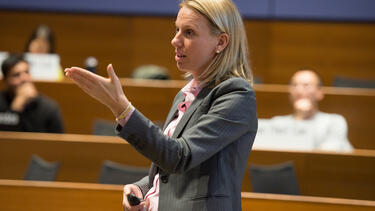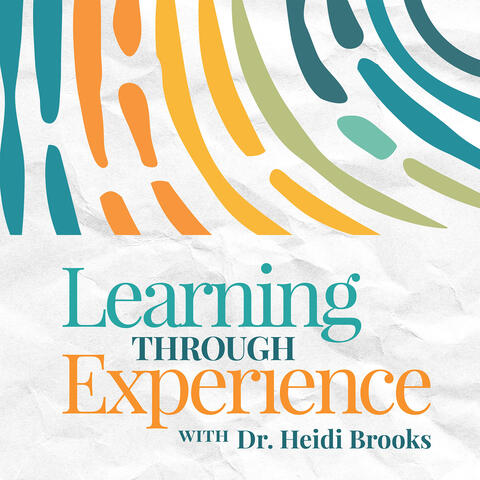Organizational Behavior
A Different Kind of Wedge Issue: What Golf Reveals About Working Across Ideological Lines
How do political differences affect workplace performance? A study of professional golfers, co-authored by Yale SOM’s Balázs Kovács, suggests that working alongside someone of the opposite political orientation may dampen the ability to execute tasks successfully.

How Finding a Mentor—or Even Better, a Sponsor—Can Accelerate Your Career
In an excerpt from her book Social Chemistry: Decoding the Patterns of Human Connection, Prof. Marissa King explains how a more experienced colleague can help propel your career.

Traditional Firms Get More Room to Innovate
A study of the Champagne market co-authored by Yale SOM’s Amandine Ody-Brasier suggests that other industry players are more likely to accept unconventional practices when they come from established firms.

Mapping Our Social Worlds
Prof. Marissa King’s interdisciplinary approach to network science has produced new insights into how people interact and ideas spread. Her new book, Social Chemistry, explains how an understanding of social networks can help solve issues faced every day by individuals, organizations, and societies.

How to Keep Your Sense of Purpose While Working Remotely
Yale SOM’s Amy Wrzesniewski, an expert in how people find meaning in their jobs, says that working remotely can diminish our sense of community and structure—and offers suggestions for staying anchored.

What Allies Should Know about Interracial Communication
A majority of White Americans say that the Black Lives Matter movement has prompted them to have conversations about race. We asked Yale SOM’s Cydney Dupree, who has studied how people from different racial groups communicate with each other, what her research says about the dynamics of the current moment.

Online and Off, We Are Drawn Toward Those with Similar Writing Styles
Both online and in-person friendships are more likely to develop between people who have similar linguistic styles, according to a new study co-authored by Balázs Kovács at Yale SOM.

Faculty Viewpoints: The Evolving Workplace
In an online event, Yale SOM faculty members discussed the sudden transformation of the workplace forced by COVID-19 and the potential for more lasting change.

Three Questions: Prof. James Baron on Why Performance Reviews Aren’t Working
We asked Yale SOM’s James Baron about the research on the effectiveness of annual reviews and what a better method might look like.

For U.S. Army, Improving Mental Health Care Meant Breaking Down Barriers Between Teams
The study suggests that for many organizations, assigning professionals from one team as points of contact to members of another—while they still maintain close ties to their own peers—may help resolve conflicts.

Three Questions: Prof. James Baron on Amazon’s New Minimum Wage
We asked Prof. James Baron, an expert in human resources and labor markets, what Amazon’s $15 minimum wage would mean for workers there and at other companies.

